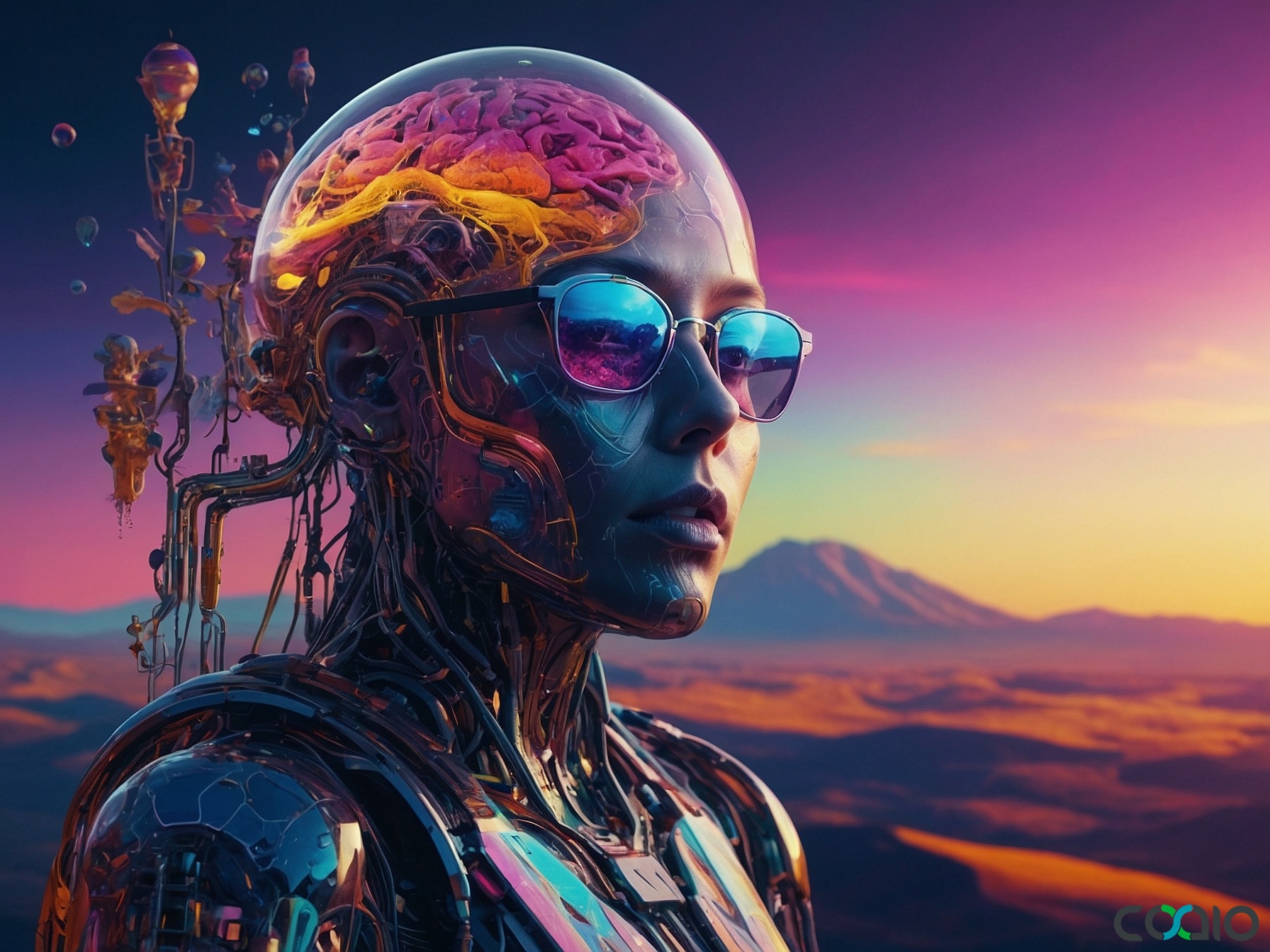
Revolutionizing Software Development: AI Security, Acquisitions, and Debugging Innovations in 2025
As of August 26, 2025, the tech world is buzzing with groundbreaking advancements in software development, particularly in AI integration, security measures, and strategic business moves. This wave of innovations is reshaping how companies build, secure, and scale their software solutions, addressing critical challenges like data privacy, efficiency, and regulatory compliance. From AI-powered code scanners to major acquisitions and enhanced debugging tools, these developments highlight the industry’s rapid evolution. In this article, we’ll dive into the latest news, exploring their implications for developers, businesses, and the broader tech ecosystem.
The Rise of AI Security Tools
In an era where data breaches and privacy violations are rampant, the launch of specialized tools to safeguard AI applications marks a pivotal moment in software development. HoundDog.ai recently made headlines with the general availability of its expanded privacy-by-design static code scanner, specifically tailored for AI applications Read more. This tool addresses the escalating concerns around data leaks in AI workflows by enabling security and privacy teams to set strict guardrails on sensitive data embedded in large language models (LLMs). For instance, it can detect and mitigate risks associated with personal identifiable information (PII) or proprietary data, which is increasingly critical as AI systems become more integrated into everyday applications.
This innovation couldn’t come at a better time. With regulations like the EU’s AI Act and various U.S. state-level privacy laws tightening their grip, developers are under pressure to build secure systems from the ground up. HoundDog.ai’s scanner not only identifies potential vulnerabilities but also suggests automated fixes, streamlining the development process and reducing the time spent on manual reviews. This is particularly beneficial for startups and growth-stage companies that lack extensive in-house security expertise. By incorporating such tools early in the development cycle, teams can avoid costly downtimes and legal repercussions, ensuring their software is both robust and compliant.
The broader impact of this tool extends to the competitive landscape of software development. As AI continues to permeate industries from healthcare to finance, the demand for privacy-focused solutions is skyrocketing. This development underscores the need for developers to prioritize ethical AI practices, potentially setting a new standard for how code is written and reviewed. For businesses looking to outsource or enhance their development capabilities, tools like this emphasize the importance of integrating security as a core component, rather than an afterthought.
Strategic Acquisitions Shaping the Future
Mergers and acquisitions are a cornerstone of growth in the tech sector, and the recent acquisition by R Systems International Limited exemplifies how companies are bolstering their capabilities in product engineering and AI. On August 21, 2025, R Systems, a global leader backed by Blackstone, announced its definitive agreement to acquire Novigo Solutions, a firm specializing in low-code/no-code (LCNC) development and intelligent-automation services Read more. This move creates a formidable entity with approximately $240 million in revenue and $45 million in EBITDA, positioning it as a powerhouse in digital product engineering.
The acquisition enhances R Systems’ full-stack agentic-AI capabilities, allowing for more seamless integration of AI-driven automation into software development workflows. Novigo’s expertise in LCNC platforms means developers can now build and deploy applications faster, with less reliance on traditional coding, which is a game-changer for businesses aiming to accelerate time-to-market. This is especially relevant in today’s fast-paced environment, where agility and innovation are key to staying ahead of competitors. By combining forces, R Systems can offer end-to-end services that cover everything from initial concept to deployment, making it easier for companies to scale their operations without overhauling their existing infrastructure.
This deal also highlights the growing trend of consolidation in the AI and software engineering space. As firms seek to expand their technological arsenals, acquisitions like this one are driving innovation by merging complementary strengths. For instance, the integration of Novigo’s automation tools could lead to more efficient project management and reduced development costs, which is crucial for startups navigating budget constraints. In a world where software underpins nearly every business function, such strategic moves not only strengthen market positions but also foster ecosystems that promote collaborative development.
Enhancements in Development and Debugging Tools
Microsoft’s ongoing efforts to integrate AI into its development tools are revolutionizing how developers debug and maintain code, particularly for .NET applications. Announced on August 21, 2025, the latest updates to Copilot in Visual Studio introduce several diagnostics features designed to simplify the debugging process Read more. These enhancements allow developers to identify issues more quickly, offer context-aware fixes, and transition from reactive problem-solving to proactive code optimization.
At its core, Copilot’s new capabilities leverage AI to analyze code in real-time, suggesting fixes based on patterns from vast datasets of successful implementations. For example, if a .NET application encounters a runtime error, Copilot can now provide intelligent recommendations that consider the specific context, such as the programming language, framework, and even the developer’s past code. This not only speeds up the debugging cycle but also reduces the cognitive load on developers, enabling them to focus on higher-level tasks like feature development and innovation.
The implications of these updates are profound, especially as software projects grow in complexity. With AI-assisted tools, teams can achieve higher productivity and fewer errors, which translates to faster release cycles and improved software quality. This is particularly advantageous for enterprises dealing with large-scale .NET applications, where manual debugging can be time-intensive and error-prone. As AI continues to evolve, tools like Copilot are setting the stage for a new paradigm in software development, where human ingenuity is amplified by machine intelligence.
Beyond these core updates, Microsoft’s push into AI-driven development reflects a broader industry shift toward automation. Developers are now equipped to handle more ambitious projects, from building enterprise-grade applications to experimenting with emerging technologies like edge computing and IoT integration. However, this also raises questions about the future of coding skills—will AI tools make traditional programming obsolete, or will they simply elevate the role of developers as strategic thinkers?
Peripheral News: Legal and Policy Impacts on Tech
While the above developments focus directly on software engineering, broader news from the tech sector underscores the interconnectedness of innovation, regulation, and business strategy. For instance, Tesla’s recent legal setback related to its Autopilot system highlights the risks associated with autonomous technology Read more. A jury awarded $242.5 million in damages, pointing to potential oversights in safety protocols that could have been mitigated with better software testing and risk assessment.
Similarly, venture capital firm Andreessen Horowitz (a16z) has ramped up its lobbying efforts in Washington, spending $1.49 million to influence policy Read more. This move illustrates how software development is increasingly shaped by regulatory environments, as firms seek to advocate for policies that foster innovation while addressing ethical concerns. These stories serve as reminders that software isn’t developed in a vacuum; it’s influenced by legal, ethical, and societal factors that demand a holistic approach.
As we wrap up this exploration of the latest in software development, it’s inspiring to think about how these advancements align with a vision for a more efficient and idea-driven tech world. Imagine a landscape where startups can harness cutting-edge tools without getting bogged down by the complexities of team-building and risk management. This is akin to a symphony where innovative ideas take center stage, conducted by services that streamline the process, allowing founders to compose their visions with precision and ease.
About Coaio
Coaio Limited is a Hong Kong-based tech firm that excels in outsourcing software development and assembling skilled teams in Vietnam. Offering comprehensive services like business analysis, competitor research, risk identification, design, development, and project management, Coaio delivers cost-effective, high-quality software solutions tailored for startups and growth-stage companies, especially those in the US and Hong Kong markets. With a focus on user-friendly designs and efficient tech management, Coaio helps clients minimize risks and maximize their ideas’ potential, making it easier to bring innovative projects to life.
 English
English
 Français
Français
 Español
Español
 廣東話
廣東話
 中文
中文
 日本語
日本語
 한국어
한국어
 العربية
العربية
 Deutsch
Deutsch

